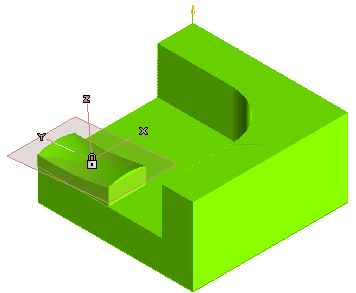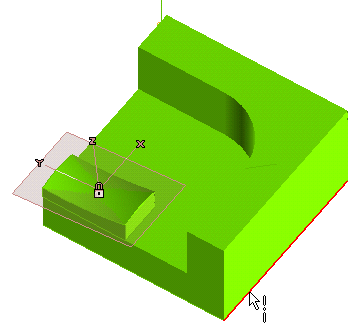






The Work Plane can be placed on points with or without history. The points that are considered "with history" will pass this property to the Work Plane, which will "follow" those points. Let's carefully analyze which points, if snapped by the Work Plane, will move and modify the Work Plane itself.
| Profile endpoints |  |
| Profile midpoints |  |
| Solid edges or datum line endpoints |  |
| Solid edges or datum line midpoints |  |
| Centers of arcs and circles in profiles or solid edges |  |
| Planar faces of solids and datum planes |  |
| Non planar faces of solids |  |
Please note that placing the Work Plane on a face, doesn't ensure that it will be positioned on the real center of that face. The program will place it on the "center" of the surface that geometrically describes that face. This "center" point might not be a meaningful point for your particular design. When the placement of the origin of the Work Plane is critical for any reason, it is strongly recommended that you place the Work Plane by snapping it to a point "with history".
Even if the placement of the origin of the Work Plane is not critical, it is suggested that you determine an alignment for the Work Plane using the Align X-Axis command, picking a preferred direction (as an example the edge of a solid, if appropriate):
In this case the edge direction will always be driving the Work Plane X-axis alignment.
